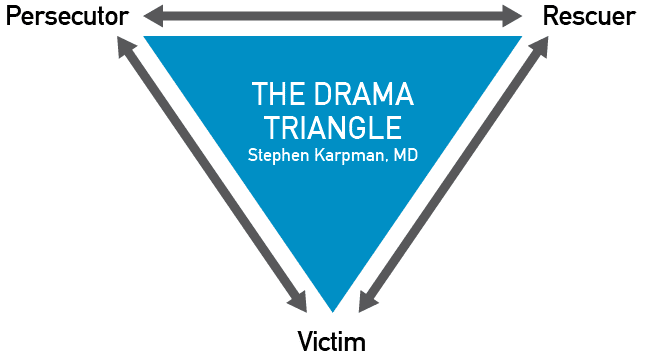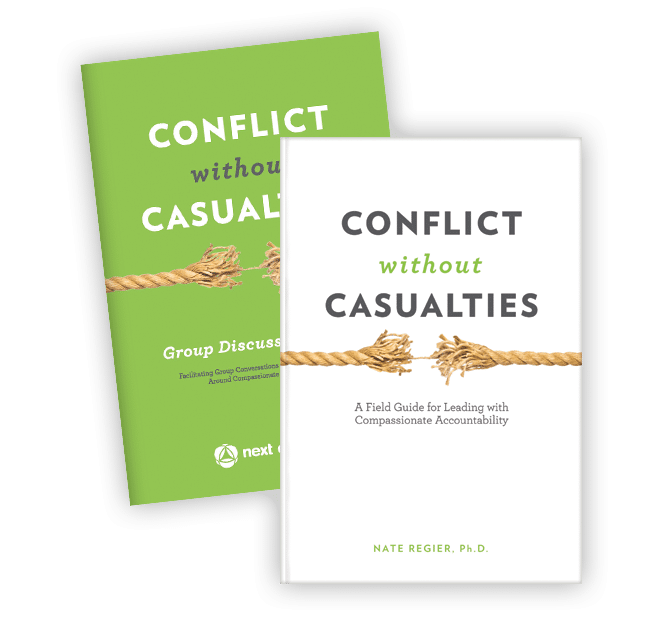Brexit, Trump, And The Surge of Struggling Against
Share viaIn recent weeks we’ve seen a surge of oppositional and adversarial struggling. Brexit is the most recent example of the Britain struggling against the EU to differentiate, seeking to increase their sovereignty and independence. Trump’s message is very similar, that we should struggle against anyone who is perceived to be watering down America’s strength and identity. Even though adversarial and oppositional struggle always leads to increased violence and other negative personal consequences, people still choose it. I’d like to offer a perspective through the lens of Karpman’s Drama Triangle.

Psychiatrist Stephen Karpman developed the Drama Triangle to explain the roles people play when in distress, not thinking clearly, usually in response to some form of perceived threat. It’s called Drama because the energy of conflict is misused to destroy and promotes additional violence rather than to create any meaningful and lasting solution.
The Victim gives in, loses confidence in themselves and withdraws to keep the peace. With regards to the huge geopolitical issues we are facing in our world now, the Victim’s attitude may be something like, “We should just keep being nice and hope they change,” or “Let’s not rock the boat. Can’t we all just get along?” Victims wish for a change but don’t engage in productive action to make it happen.
The Persecutor responds to their fear and insecurity by lashing out, either through blaming others or attacking them. Trump is a prime example of Persecutor behavior, using tactics like oversimplifying the problem, depersonalizing the enemy, and stoking hate among people who don’t really understand the big picture or the consequences of their own actions. Persecutor responses to the biggest issues we are facing in our world include statements like, “We should ban all Muslims from entering the country,” or “Gays had it coming.” Persecutors seek self-justification by creating enemies out of anyone who doesn’t agree with them.
Rescuers seem like helpers on the surface because they are quick to swoop in with a solution. The problem is that their solution doesn’t create long-term solutions because they are more interested in boosting their own ego and being a hero than building self-sufficiency and long-term competence. Rescuer responses to our world’s woes sound something like, “Here, let me make you safer by controlling access to guns.” or “The government will run healthcare so you don’t have to worry about affording coverage.” Much of the opposition to government intervention is a natural reaction to the perception of being rescued. One of Brexit’s most compelling arguments was that the EU was making decisions for them, not allowing them enough sovereignty, not acting in their best interest.
Every role on the Drama Triangle is motivated by the same thing; self-justification. Each role wants to believe that their position, attitude, and behaviors are right. Yet, every role is contributing to making our world a more dangerous place to live. Self-justification is a short-term rush with long-term negative consequences.
Yet it all makes sense in a twisted way. Victims long for vengeance, so when a Persecutor comes along and promises to smite all those people who scared you, abused you, and took away your opportunities, it’s a pretty seductive proposition. When a Rescuer comes along and promises to take care of you, it feels so good. One of the most dangerous types of people are Victims who have turned Persecutor. They channel all their anger and hate and resentment towards destroying the perpetrator, spreading fear and avenging the damage that’s been done to them and their people. They have nothing to lose. This is terrorism.
Drama runs on fear and insecurity. Its tools are misinformation and polarization. Its end result is more violence. The alternative is not to do nothing. The alternative is very hard work and involves struggling alongside others to increase connection, creativity, and accountability. We are all better off when we struggle together instead of against.
Copyright 2016, Next Element Consulting, LLC
 Learn more about struggling with others in our latest book, Conflict Without Casualties: A Field Guide for Leading With Compassionate Accountability. This book is the foundation for our Leading Out of Drama program, a comprehensive system for building cultures of compassionate accountability.
Learn more about struggling with others in our latest book, Conflict Without Casualties: A Field Guide for Leading With Compassionate Accountability. This book is the foundation for our Leading Out of Drama program, a comprehensive system for building cultures of compassionate accountability.
![]() Subscribe to Dr. Regier’s free podcast
Subscribe to Dr. Regier’s free podcast
Book Your Next Keynote Speaker

Author and Co-founder of Next Element, Dr. Nate Regier is available to speak at your upcoming event.
Submit a Speaker RequestPodcast: Listen to Nate "On Compassion"
 Listen to the Podcast
Listen to the Podcast



1 Comments
This is an awesome discussion about the drama triangle. It let’s me know professionally where I need to be to create change but still maintain my values in an ever changing world.
Thank you Barbara. So often people think that compassion and accountability cannot co-exist. Not so!
Add comment
Add comment
Add comment